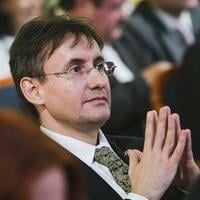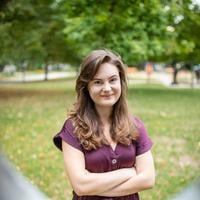Hi XXX,
I am glad to answer your questions, I hope it will be helpful for you.
First I want to tell you that I think it is great for you that you have a background in computer science, which I suppose has given you a good mathematical basis. Such a background is very helpful in this PhD Program, since it is rather quantitatively demading (including the business courses).
The program is divided into two, quite separated, parts. First two years you are going to have courses, which in general occupy all the time you have, or even more. :) This time, particularly the first year (when you must fulfill grade requirements, B on average), is tough, but not impossible to pass well. Then, you will be working on a thesis. Regarding your questions:
- Do you see a chance to finish the PhD in BA & QM (Business Administration and Quantitative Methods) in about 3 years? Or would it be more realistic to plan with 4 years?
I give you answer from two views. 1: As far as I know, there is no student who has finished the program at our department earlier than in five years. However, PhD program in BA & QM is new (it started two years ago). Before, all the students started PhD in Economics, so they perhaps wasted some time and/or energy there. 2: In my opinion it is possible to finish the thesis within approx. 2 years provided you sacrifice your free time and you are lucky in your research (i.e. everything goes as you planned). I was coming here with the intention to finish it in 4 years, but now I see that I am not willing to keep on oppress my private life.
- Up to the moment I do not have financial aid/grant or something like that. (I have personal savings and access to a credit with quite good conditions) Do you have some recommendations regarding grants etc.? How are the chances to find a work at Carlos III? Would there be enough time to work in the private sector (part-time)?
In my personal opinion, money is the least problem of the PhD program at UC3M. You can ask the university for TA scholarship, it is quite good (about 1000 euro per month) and everybody gets it (at least until now it worked like that - the department is short of professors). The duty is to give practical classes (Ayudante), in 2 courses per year in your first year, adding one more class every subsequent year (moreless). There is also an additional (well-paid) possibility to do the same in Master programs. Then there are research fellowships, which are much fewer, a bit better (at least for external stays), but usually apply only to students who already work on their thesis. I recommend you to ask the contact person from your admission letter.
I think it is not so easy to work part-time outside of the university, at least in the first year of the program. But it obviously depends on the job and your knowledge (and so the time necessary to study). I don't know anybody who works outside.
- What is the your general impression of the program?
My personal impression is that the program is very well planned and taught. Of course, as the program is new, not everything was perfect from the beginning, but the things get better every year. There are some well-known professors coming from other universities (also from other countries) to teach in this PhD. There are many foreigners at the department and most of the Spanish ones have studied abroad. Despite the university is only 16 years old, it has a very good reputation in the academic society and currently belongs to TOP10 universities in Europe (in Economics, BA and Statistics). There are also good seminars at the department, for example, Robert Engle and Clive Granger (laureates of Nobel Prize in Economics 2003) gave talks and seminars at our university a year ago.
Well, I hope I made a realistic picture of what you can expect here. In a few words, it is not a holiday trip, but I think it is worth it. If you have any more questions, don't hesitate to contact me again. Best,
Peter.






